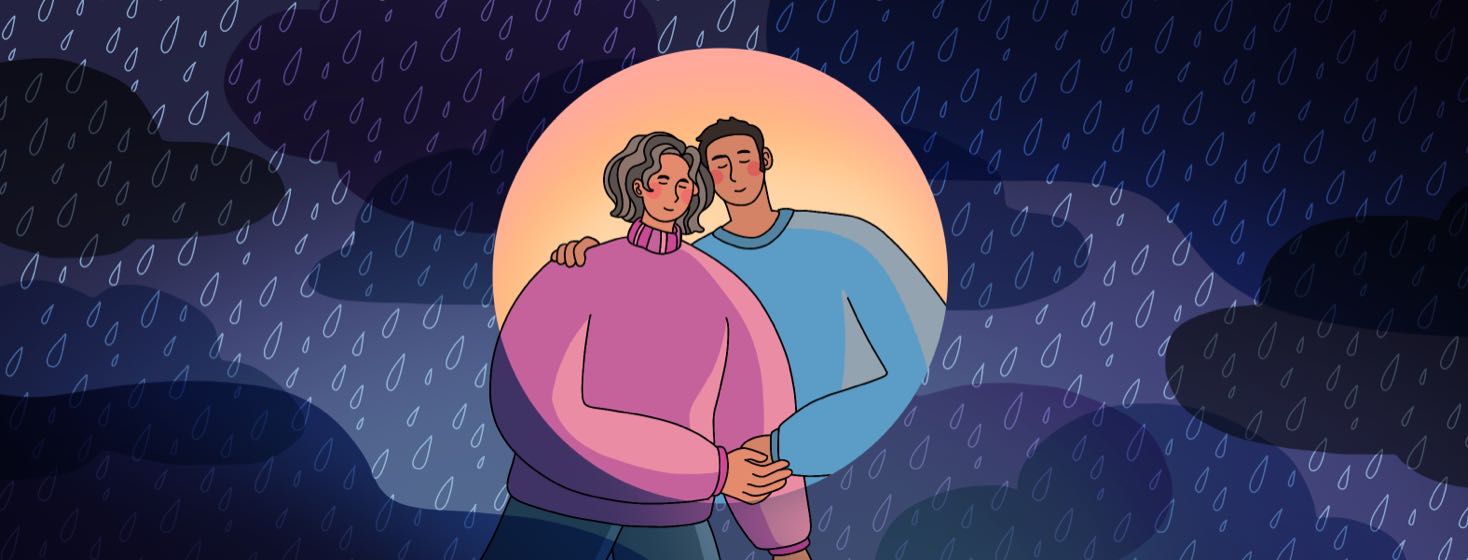Offering Support: Being There When You Can't Be There
If someone you love has been diagnosed with cancer, you'll obviously want to support them in every way possible. If you live locally, you can offer support in many ways: driving to appointments, meal drop off, and medicine collection. You can help with the simple day-to-day cleaning of their house, doing the dishes, or any other little thing that can make their life just a little bit easier.
But what if you can't do these things? How can you be there for someone if you can't physically be there?
Maybe you aren't able to offer your support in the ways just mentioned due to your health conditions. Or maybe, like me, you live far away in another country. How, then, can you support someone if you aren't physically able to be near them?
Support can take many forms
My experience of living overseas during my mother's cancer journey taught me that support could take many forms. I also learned that I wasn't there for the day-to-day medical appointments, hard days - can be the breath of fresh air your loved one needs. Let me explain what I mean a little further.
Living in another country when my mother received her diagnosis was world-shattering news.
What was harder were the weeks and months that followed. I just didn't know how to help or support my mother without actually being there. But as time went by, I realized that my not being there could actually be a form of support. And as crazy as this sounds, it was true.
Distance from bladder cancer, but not from mom
Because I wasn't there daily, weekly, or even monthly, bladder cancer wasn't something I was confronted with daily.
Of course, I thought about my mother and how she was doing every day, how this situation was affecting my father and brother, who both live at home with my mother. Obviously, we kept frequent and regular contact with each other.
Even with this regular contact, I didn't really know what the daily reality was for my mother and family during this time.
My secret superpower
Here is the strange part. Being abstracted from the situation gave me a sort of superpower. I was the one who could keep things 'normal.'
Now, normal is a strange word to use when talking about bladder cancer. What I mean is my day-to-day life was continuing as if my mother didn't have cancer.
In the beginning, this feeling racked me with guilt. I would ask myself, "How can my life continue as if nothing has happened when my mother is going through something so difficult?"
What I eventually learned was that not being there and being able to talk about things other than bladder cancer provided a sort of relief. A way for my mother to live a little vicariously, to escape her reality, even if just for a brief moment.
Being a source of respite from the cancer talk
In fact, I even remember her saying something along the lines of, "That's enough about me. Tell me how you're doing," during one of our phone calls. When she first said this, I remember recoiling away from the telephone, thinking why do you want to know how I'm doing?
I'm not the one with cancer. I should be asking how you're doing. I want to know about your latest appointments, diagnoses, treatment plans, and so on. But then it dawned on me. My mother's whole world now revolved around bladder cancer, appointments, worries, treatment plans, medication, and more appointments.
Having someone outside of her immediate locale allowed her to talk about something other than cancer.
Supporting a loved one with bladder cancer
And that is when I learned that not every conversation has to be about cancer. This was my eureka moment.
I suddenly realized how frustrating it could be for my mother. Everyone who called wanted the same update about the same appointments. How many times has my mother repeated her diagnosis, prognosis, treatment plan, scheduled surgeries, and every other detail regarding her cancer?
Being able to provide some news not related to cancer was one of the ways I could provide relief - a moment of distraction — a moment not all about cancer.
Over the next few months, the feelings of guilt which were so incredibly powerful in the beginning, began to subside. I realized this was my way to offer support during my mother's cancer journey. I couldn't be there physically, but I could be the distraction my mother so desperately needed.

Join the conversation